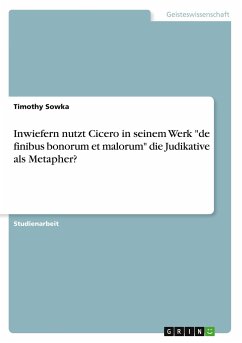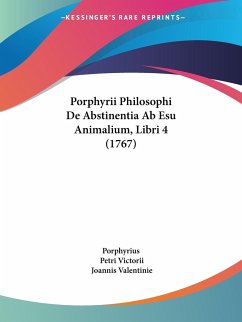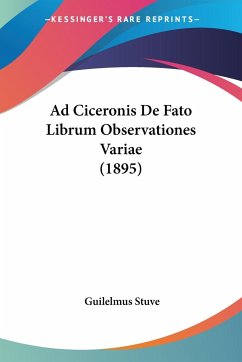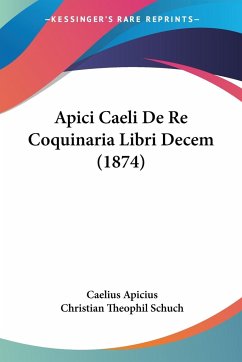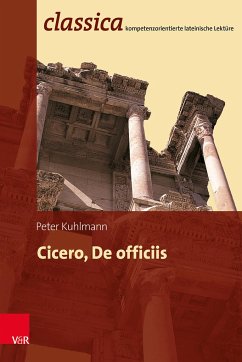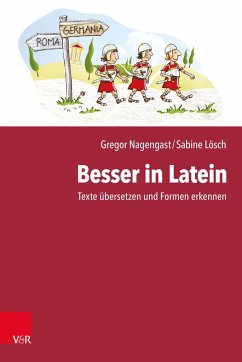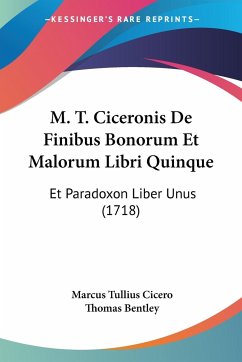
M. T. Ciceronis De Finibus Bonorum Et Malorum Libri Quinque
Et Paradoxon Liber Unus (1718)
Herausgeber: Bentley, Thomas
Versandkostenfrei!
Versandfertig in 1-2 Wochen
34,99 €
inkl. MwSt.

PAYBACK Punkte
17 °P sammeln!
M. T. Ciceronis De Finibus Bonorum Et Malorum Libri Quinque: Et Paradoxon Liber Unus est opus philosophicum quod a Marco Tullio Cicerone scriptum est. In hoc libro, Cicero disputat de finibus bonorum et malorum, id est de fine vitae humanae et quomodo homo eam optime vivere possit. Liber quinque est, quorum singuli de differentibus philosophiis disputant. Paradoxon Liber Unus est, in quo Cicero argumenta contraria defendit. Haec editio libri anno MDCCXVIII publicata est.This scarce antiquarian book is a facsimile reprint of the old original and may contain some imperfections such as library ma...
M. T. Ciceronis De Finibus Bonorum Et Malorum Libri Quinque: Et Paradoxon Liber Unus est opus philosophicum quod a Marco Tullio Cicerone scriptum est. In hoc libro, Cicero disputat de finibus bonorum et malorum, id est de fine vitae humanae et quomodo homo eam optime vivere possit. Liber quinque est, quorum singuli de differentibus philosophiis disputant. Paradoxon Liber Unus est, in quo Cicero argumenta contraria defendit. Haec editio libri anno MDCCXVIII publicata est.This scarce antiquarian book is a facsimile reprint of the old original and may contain some imperfections such as library marks and notations. Because we believe this work is culturally important, we have made it available as part of our commitment for protecting, preserving, and promoting the world's literature in affordable, high quality, modern editions, that are true to their original work.



